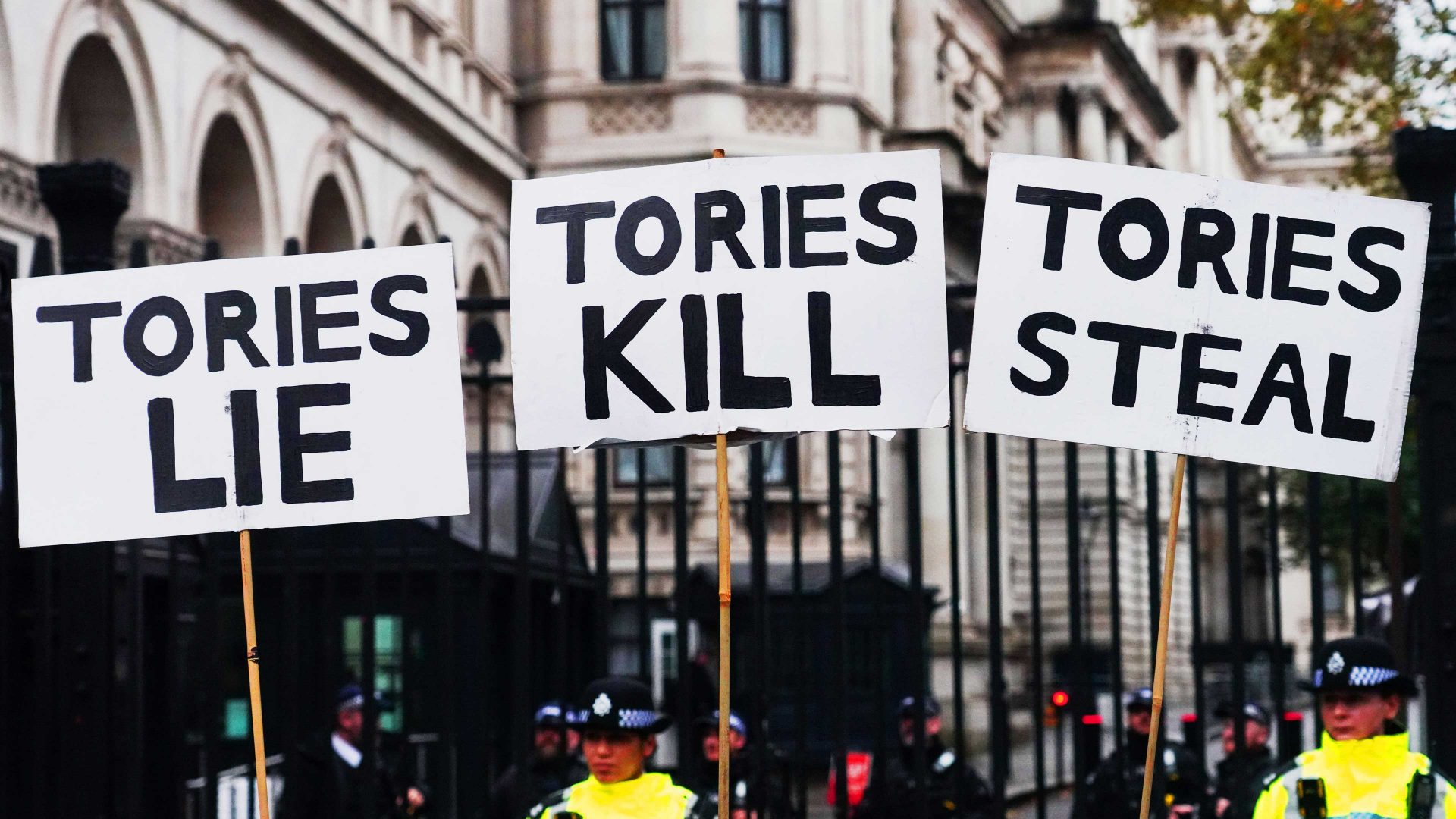The Conservative Party’s inability to stick with a prime minister is costing the taxpayer dear. In addition to the £18,660 severance payments that Boris Johnson and Liz Truss both happily banked – not to mention the £115,000-a-year all former PMs get from the moment they leave office – their attempts – and later Rishi Sunak’s – to make themselves at home at Chequers has resulted in an inflation-busting £300,000 increase in running costs at the country pile in Buckinghamshire.
“It’s the fact we have been through three prime ministers – all with their own ideas about what to do to make Chequers more comfortable – that accounts for the increase,” whispers my man in Whitehall. “The staff there have been at sixes and sevens for as long as they can remember, and they are of course conscious they are likely to have another new tenant within a year.”
The latest accounts for the property show that £1.3m was given as a grant-in-aid from public funds to the Chequers Trust, significantly up on the £980,000 deemed necessary to run the place in 2022. No official explanation has been given for the increase, but the figures cover the last six months of Johnson’s premiership, the 49-day tenure of Truss and the first seven months of Sunak.
I was the first to disclose, in September 2019, the work that the slovenly Johnson was making for the cleaning staff at the prime ministerial properties – he was said to leave rooms “looking like student digs” – and Truss’s period as foreign secretary coincided with traces of cocaine being discovered at her previous official residence, Chevening.
At Chequers, I am told Truss had demanded, among other things, the installation of an expensive espresso machine, as she professes to be unable to function without her favourite coffee.
In 2019, the BBC obediently covered Nigel Farage’s pitifully attended Leave Means Leave march as it set off from Sunderland, but the tens of thousands on the Rejoin March through central London on Saturday were not acknowledged at all by the corporation. Official complaints have been made to the BBC about their lack of coverage, and as Peter Corr, the lorry driver who organised the event, tells me, it was a march not of any “metropolitan liberal elite”, but ordinary people like him whose lives had been blighted by Brexit.
“We had got in touch with the BBC in good time to tell them about the march, but, from the outset, we had no interest at all from them,” he says. “It was as if they had been told not even to talk to us and it was pathetic.”
He added that a lot of Lib Dems boycotted the first day of their own conference in Bournemouth to march because of their exasperation with Sir Ed Davey for dropping his party’s rejoin policy, and a lot of Labour voters who were similarly disillusioned with their own party’s position also showed up. Banners emblazoned with the logo of the New European, the media partner for the event, were much in evidence and free copies were distributed to marchers. Overseas broadcasters covered the event, and, even without a mention from the BBC, Corr feels it made its point eloquently.
Will they be back again next year? “We will keep marching each year until we are back in the EU,” he says defiantly.
For it to qualify as a “story” that Rupert Murdoch was “stepping down” as chairman of News Corp and Fox presupposed, of course, that a man aged 92 could ever really have been fully in charge of a global media business in the first place. Insiders within the business have long been telling me that the nonagenarian’s son Lachlan has been taking the important strategic decisions, so any hopes of a sudden change of direction now that he’s officially in charge are almost certainly misplaced.
One outpost of the business where there is a justifiable sense of foreboding is HarperCollins, where they know only too well that Lachlan has little, if any, interest in books. Some years back he was being taken around the publishing house in London to meet its senior executives. He was introduced by Victoria Barnsley, who was then in charge, to 10 of their most senior editors.
“Lachlan made it obvious he found them all very boring,” one bookworm tells me. “Still, Victoria kept a rictus grin on her face, and, after all the introductions, presented him with one of their top-selling history books. He took it, briefly opened it and simply returned it before walking silently out of the office. We got the clear impression that books were not exactly his bag.”
Lachlan and his brother, James, were, incidentally, played by real-life Aussie brothers Josh and Ben Lawson in the recent film Bombshell about the toppling of the Fox News supremo Roger Ailes. Ailes’s comment about James in the film – “tell me that mouth hasn’t sucked a cock” – apparently startled his father when he saw it and may well go some way to explaining why he was never in with much of a chance in the succession battle.
The fundamental problem executives at the Daily Mail have with Boris Johnson is that he regards his £1m, two-year contract with the paper as money in the bank and he has no real incentive to break stories in his column or indeed say anything remotely interesting in it at all.
The former prime minister is also clearly aware that while the Mail has been a useful ally to him, his relationship with the Murdoch empire matters a lot more. So it was over the weekend that on the same day he bored his Mail readers with a run-round-the-houses column on the fate of the Chagos Islands, Murdoch’s Times revealed on its front page how Johnson and David Cameron had warned Rishi Sunak not to drop the second leg of HS2 to Manchester.
“If you want to read anything even halfway interesting about Boris, the last place you’re going to find it is in the paper that pays him,” one Mail hireling tells me bitterly.
The People’s Bank of China is among almost 1,000 institutional investors who could benefit from Rishi Sunak’s decision to pump £500m into Tata Steel’s loss-making UK operations.
The Chinese state lender holds a 0.51% stake in the publicly listed Tata Steel Limited, the ultimate parent to Tata Steel UK whose shares are traded in India. Other Tata investors rubbing their hands with glee at Sunak’s decision are the government of Singapore, the Abu Dhabi Investment Authority, the Kuwait Investment Authority and the Saudi Central Bank, among others.
The global Tata operation is massively profitable, but its UK arm is very much the poor relation, and, worryingly for Sunak, it lost £279m on £3.1bn worth of business – more than half of the money spent on modernising its Port Talbot facilities.




